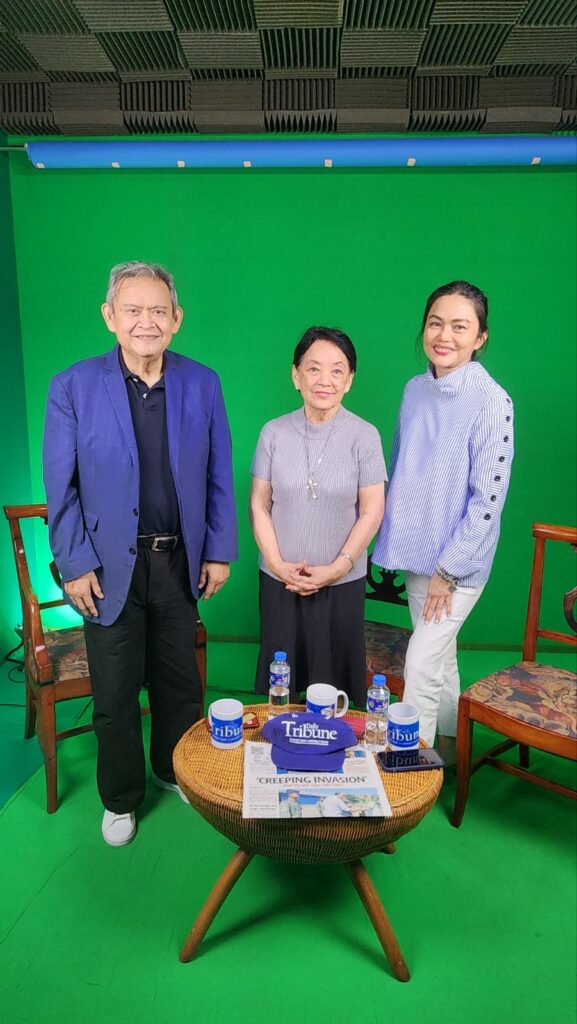In a world where extravagance and opulence were the norm, Vicky Wieneke chose a different path — one that led her to have a significant impact on the lives of those who were less fortunate. After enjoying three decades of success in fashion manufacturing business, Wieneke’s life took an amazing turn.
This is the story of her transformation from a business mogul to a dedicated advocate for community empowerment.
Wieneke, a University of the Philippines alumna, established a successful production company for well-known designers’ fashion lines. She lived in the lap of luxury, surrounded by the wealthy and the influential. Yet, despite her success, she felt that something was missing in her life, a higher purpose waiting to be fulfilled.
“I would consider this a calling from our Lord because I also became very spiritual,” she said.
In a recent interview with the DAILY TRIBUNE, Wieneke shared the pivotal moment that led her to redirect her life’s journey. She recounted watching the news about the hostility at the Malacañang Palace while she was abroad. Witnessing the struggles and injustices faced by her fellow countrymen deeply moved her. Instead of adding to the noise of complaints, she decided to be part of the solution.
Driven by a desire to bring about positive change, Wieneke set out on a mission of community building and working with marginalized sectors. She founded Kabisig ng Kalahi in the year 2000, during the tenure of Dinky Soliman as the secretary of the Department of Social Welfare and Development. This organization would become her vehicle for making a difference in the lives of those who needed it most.
One of the motivating factors behind Kabisig ng Kalahi was Wieneke’s concern for malnourished children, whom she saw as the nation’s future.
“I was more concerned about the future of the malnourished children, they are the future of the country,” she highlighted.
She worked with Soliman and other partners to build a complete program that placed a strong emphasis on community involvement and self-sufficiency. She envisioned an organized program with tangible results instead of giving them “limos.”
This program, which spans six months and 120 days, not only addresses nutrition but also incorporates values formation. The project was promoted throughout local government units, boosting cooperation between Kabisig ng Kalahi and several LGUs. The initiative was successful because it helped communities develop better civic values and problem-solving abilities.
One of the key features of Kabisig ng Kalahi’s approach is that it does not simply provide assistance, it empowers the community members to take charge of their own development. Mothers and parents actively participate in the program, fostering a sense of ownership and responsibility within the community.
Wieneke’s dedication to this cause has led to significant growth and expansion. Beyond Metro Manila, Kabisig ng Kalahi has reached places like Calabarzon, Mimaropa and even conflict-affected areas like Basilan. For its remarkable efforts to enhance human resources and community development, the organization has won various accolades and citations.
Today, Wieneke’s life revolves around her mission to uplift communities and promote self-sufficiency. She has given up the flash and glamour of the fashion industry for the joy of witnessing the success and independence of those without a voice.
Wieneke remains unwavering in her commitment to making a difference in the world. Her message to all is clear: “Let’s all do what we can for our country and for humanity. Good deeds are worth it.”
Wieneke’s story serves as a potent reminder that true fulfillment comes from having a positive impact on other people’s lives in a time when success is frequently determined by financial prosperity. Her experience motivates all of us to answer the call to compassion and service.
